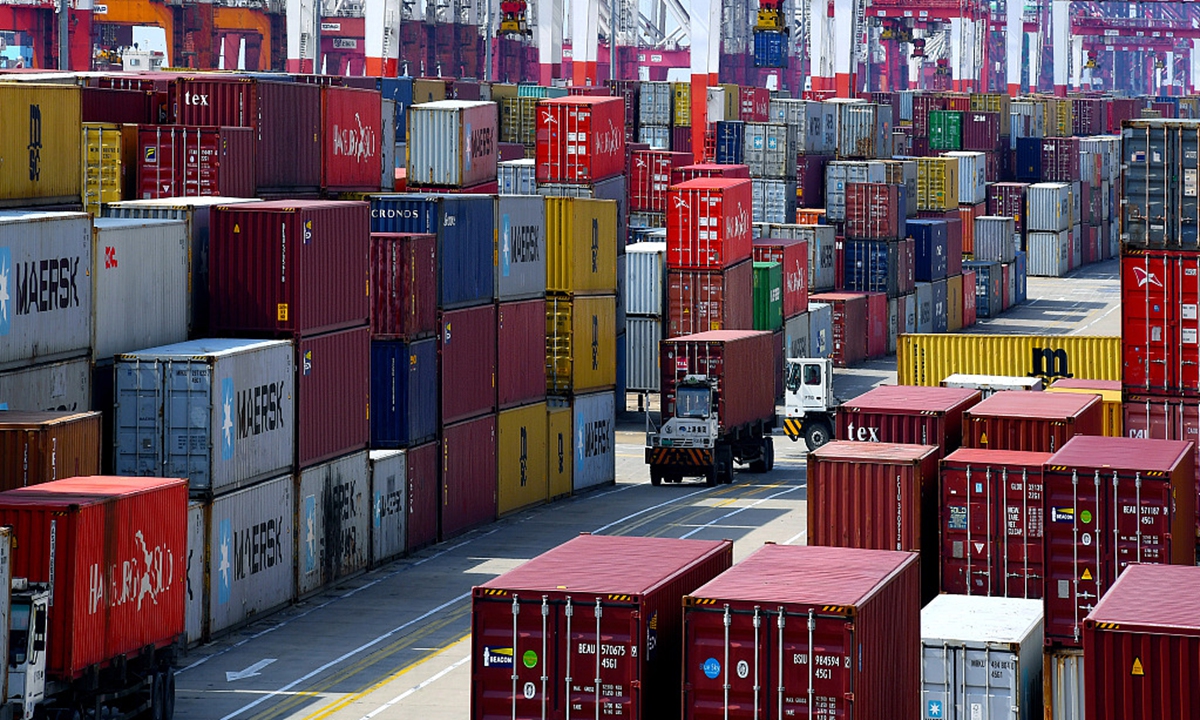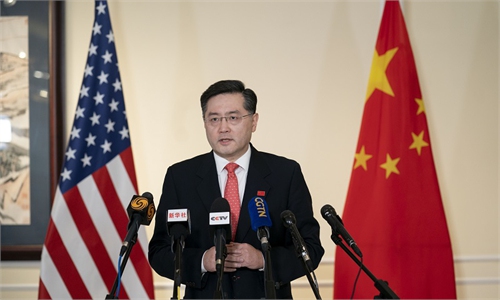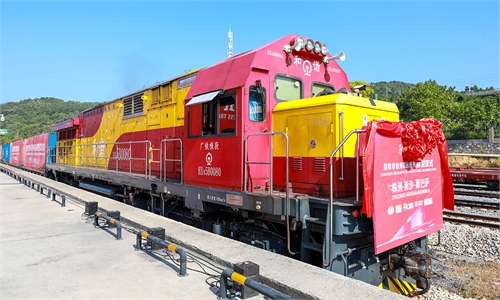China officially applies to join CPTPP, as the US increasingly isolated in trade
Move cements country’s leadership in global trade, as US increasingly isolated

foreign trade Photo:VCG
China on Thursday officially applied to join the Comprehensive and Progressive Agreement for Trans-Pacific Partnership (CPTPP), in a landmark move that attests to the country's commitment to global trade liberalization despite the impact of the COVID-19 pandemic and intensifying efforts by the US to isolate and contain China's development.
The late-night announcement aims to cement China's leadership role in global trade, while piling pressure on the US that has thus far stayed away from rejoining the revised version of the Trans-Pacific Partnership (TPP), a regional trade pact initiated by the US under former President Barack Obama that was widely believed to be aimed at containing China's rise, experts said.
Chinese Commerce Minister Wang Wentao on Thursday filed a written request for CPTPP accession with New Zealand's Minister for Trade and Export Growth Damien O'Connor, acting as CPTPP depositary, the Ministry of Commerce (MOFCOM) said in a late-night statement on its website.
The two ministers held a teleconference discussing relevant follow-up work after China's official application, said the statement.
The CPTPP, an 11-nation free trade deal that became effective in December 2018, replaced the TPP after the US withdrew in 2017 under former President Donald Trump. China's potential membership would also enhance trade cooperation with US allies, including Canada, Japan and Australia, while the US stays on the sidelines.
With Thursday's announcement, China has shown to be fast-tracking its CPTPP vision, another giant step after the signing of the Regional Comprehensive Economic Partnership (RCEP), observers noted.
In February, MOFCOM Spokesman Gao Feng revealed at an online press conference that China was actively conducting a study on matters related to joining the CPTPP and was willing to strengthen technical exchanges with CPTPP members on relevant problems.
The CPTPP, a high-standard trade deal, covers more areas than the RCEP, among other free trade deals China having signed, such as labor and environmental issues, Gao Lingyun, an expert at the Chinese Academy of Social Sciences in Beijing, told the Global Times on Thursday.
The move is a significant development for China's involvement in international economic and trade deal setting and tends to put China on a better position in deciding on future trade rules, Gao said.
The deal is also expected to complement existing domestic efforts to deepen reform and opening-up, especially when it comes to trade and investment deregulation, he remarked.
While the RCEP, still being ratified, is much of an Asia-centric pact, the CPTPP is geographically more far-reaching, with Canada and Peru as its members, meaning that "its accession could expand our circles of friends" with a greater cloud in trade terms, according to the trade expert, reckoning the application announcement as reverberating politically with the CPTPP member countries.
Song Wei, a research fellow at the Chinese Academy of International Trade and Economic Cooperation, a think tank under the MOFCOM, said that the application filing is indicative of China's unswerving stance on global trade openness despite the rise of global trade protectionism that's being fanned by the long tail of COVID-19.
China is hoping for the CPTPP to put global trade and economic cooperation back on track, underscoring the need for multilateralism, thereby reviving both the Chinese economy and the global economy in the post-COVID-19 era.
More importantly, watchers of international affairs stressed that China's latest step that is set to steady its partnership with CPTPP members, would inevitably subject the US to what could be overwhelming pressure.
The US' changed course on trade policy has remained in place even after Trump's successor Joe Biden broke with Trump's unruly go-it-alone mentality in foreign policy, rejoining the Paris climate change agreement and becoming a member of the World Health Organization once again.
There have been no signs of the Biden administration attempting to revive the trade pact though. US Trade Representative Katherine Tai has also dodged questions about the US' return to the TPP.
Contrary to China's open and optimistic attitude toward the CPTPP, the US is seen increasingly distancing itself from traditional trade partners, including Japan and South Korea, Song commented.
As the trade pact is envisioned to cement China's role as a contributor to regional and global trade integration, it is hoped that its progress can also spur China-US cooperation, she noted.
Albeit under greater pressure from China in the trade arena, it's still unlikely for the US to rejoin the pact, Gao said, citing the hollowing out of US domestic industries that could ferment issues throughout US domestic services trade should it re-link with the trade deal that could eventually erode US economic strength primarily focusing on its services prowess.


